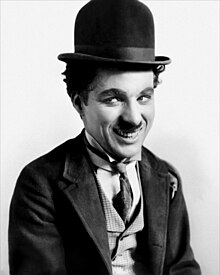Verbs
 Verb talar om vad någon eller något gör.
Verb talar om vad någon eller något gör.
Också ord som: heter, är.
Grundform (infinitiv)
- to cry
- to sing
- to skate att åka skridsko
- to talk att prata
Dåtid (har gjort: i morse, igår, förra veckan, förr i tiden osv)
- call - called
- cry – cried (y→i)
- skate åker skridsko – skated åkte skridsko (Det redan slutar på -e)
- sing – sang sjung (Det är långt ifrån alltid att man lägger till -ed)
- talk – talked
- Använd alltid has när det gäller vad hon/han har gjort: he/ she has talked
But: I have talked • you have talked • we have talked • they have talked
Framtid (ska göra, kommer att göra)
- I'll will do it. = I'll do it. = I'm going to do it.
Informell: I'm gonna do it.
(Det är inte standard att säga: "I gonna do it")
Pågående - det som håller på att hända
- I am singing. You are eating. He is running. She is painting. We are talking. You all are reading. They are sleeping.
- Skilj på "She is swimming" just nu, kanske första gången i sitt liv och "She swims" (regelbundet, eller som en vana).
Tredje person singular: I eat, he eats
•När han eller hon gör nåt, lägg till s
I eat → he eat s
I talk → he talk s
I sing → he sings
I play → he plays
I cry → he cries
Använd alltid -s när det gäller vad han/hon gör. Enda udantaget: att vara
att vara
|
I am jag är you are du är he is / she is / it is you-all are ni är they are dom är |
I was jag var you were du var he was / she was / it was you-all were ni var they were dom var |
| ←dåtid | nutid | →framtid |
|
← |
↓ |
→ |
|
← |
↓ |
→ |
| ←dåtid | nutid | →framtid |
• Öva: 1
Simple Present Tense source
Write the correct form of the verb "to be" in present tense nutid.
Example: I (be) __am__ happy.
1) I (be) _____ tired.
2) I (be) _____ hungry.
3) I (be) _____ late! Example: You / We / They (be) are happy.
4) He (be) _____ cool.
5) She (be) _____ pretty.
6) I (be) _____ late.
7) You (be) _____ nice.
8) We (be)_____sleepy.
9) They (be)_____funny.
Now we’ll use nouns substantiv instead of pronouns...
10) John (be) _____ excited.
11) Tiffany and Uma (be) _____ my friends.
12) Ricardo, John and I (be) _____ watching a movie.
13) Hadil (be) _____ kind.
14) Alisa (be) _____ young.
15) The hammer (be) _____ new.
16) My mother and father (be) _____ cooking dinner.
17) Rachel (be) _____ driving to the mall.
18) Nikkos and Billy (be) _____ playing at the park.
19) The students (be) _____ studying English.
20) The test (be) _____ hard!
21) My best friend (be) _____ coming to my house.
Regular verbs
600 common regular verbs.
Note spelling variations. (For example, practise becomes practice in  .)
.)
Irregular verbs
"Det finns otroligt många oregelbundna engelska verb, fler än i de flesta andra språk.
Det är nästan omöjligt att lära sig dem alla — men de vanligaste bör man känna till." källa
![]() 139 common irregular verbs Öva: 1 2 3
139 common irregular verbs Öva: 1 2 3
Note: got gotten
gotten
More differences 1': 1 2
Change the verbs
2. The film was very good. I (enjoy) __________________it very much.
3. I was so tired, so I (go) ________________________to bed early.
4. It was a funny situation but nobody (laugh) _______________________.
5. The window was open and a bird (fly) ____________________into the room.
6. The hotel was very expensive. It (cost) ________________very much.
7. The bags (be)______________very heavy.
8. We (see) __________Rose in town a few days ago.
9. I (go) _______________to the cinema three times last week.
10. She (have) ______________dinner with some friends yesterday.
11. Ann (meet) _____________Tom at the airport a few weeks ago.
12. Thomas (drive) _________________too fast.
13. I (hear) _____________some noises behind me.
Charlie Chaplin
| 1. Watch Chaplin on 2. Answer the questions. |
 |
Describe Charlie Chaplin: _______________________________ _______________________________ _______________________________ _______________________________ _______________________________ |
He (catch) ___________________ a fish.
He (take) ___________________ off his gloves.
He (light) ___________________ a cigarette.
He (walk) ___________________ along a road.
A car (drive) ___________________ past him and he (fall) ___________________ backwards.
He (kick) ___________________ another man.
He (be) ___________________ a soldier and ___________________(dance).
He (have) ___________________ a gun and was (hit) ___________________ by a snowball.
He (run) ___________________ to the water and ____________________(dive) into it.
He (eat) ___________________ spaghetti.
A woman (hit) ___________________ him with her umbrella.
He (lift) ___________________ a heavy bag and (swing) ___________________ it around.
He (walk) ___________________ backwards.
He (come) ___________________ out of the sand and a gun (point) at him.
He (dig) ___________________ back down again.
He(fly) ___________________ in an old plane.
He (throw) ___________________ food at another man.
He (be) ___________________ a policeman and he _________________(knock) a big
man on the head.
He (try) ___________________ to put out a fire on a woman’s dress.
He (balance) ___________________ on a rope and a monkey ______________(hang) on
to him.
He (chase) ___________________ a man along the road.
Some people (jump) ___________________ off a car.
He (make) ___________________ potatoes dance on the table.
He (clap) ___________________ his hands.
He (stand) ___________________ under a lamp shade.
He (jump) ___________________ into a big chest.
He (rub) ___________________ a baby’s stomach.
He (run) ___________________ away dressed as a tree.
He (slide) ___________________ down a roof.
In the end he (eat) ___________________ a baby’s cake.

